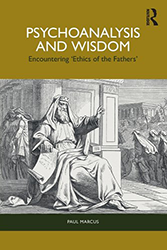When We Turned Within: Reflections on COVID-19 is an anthology of over 150 essays, poems, and original prayers by writers, clergy, educators, and Jewish professionals in response to the COVID-19 pandemic. Many of the entries connect to the Torah portions or Jewish holidays celebrated during the early part of the pandemic. It is edited by Rabbi Menachem Creditor, the Pearl and Ira Meyer Scholar in Residence for UJA-Federation of New York, and Sarah Tuttle-Singer, New Media Editor of the Times of Israel. The contributors are as diverse as our Jewish community today, but the entries share the hopes and fears many have felt during this challenging time.
In her introduction, Tuttle-Singer poignantly shares that editing this anthology was both a professional and personal journey. It brought her from a deep sense of isolation to the uplifting recognition that she was not alone in her experience. “These stories brought the sunlight,” she writes. “These stories brought me back to the surface once again. Because I realized something powerful while I was reading through each one: While each of us is a universe unto ourselves, we are not alone.”
Chesed Shel Emes: A True Kindness, by Rabbi Benjy Spiro, painfully recounts the author’s two a.m. call to prepare the deceased for a COVID-19 funeral, wearing a Tyvek suit, goggles, gloves, a mask, and a face shield, and lamenting the painful reality that there “will likely be no semblance of a funeral, no opportunity to honor this person, to share the experiences that this person gave to everyone around him.”
Dahlia Lithwick’s essay Online Judaism is an Echo Chamber. Will We Ever See Those We Disagree with Again? forces us to recognize that bringing Jewish life online, while an immediate solution to social isolation, risks isolating us from ideas different from our own. “But as I move online,” she writes, “I notice that I’m studying with people who think as I do; I’m worshipping with people who share my exact values; my Zoom calendar is a massive array of pick-your-own-ending experiences that often end precisely where I began.”
Rebecca Minkus-Lieberman’s poem Being Married to a Superhero shares her frustration and pain in separating from her husband, a doctor, when she needs her connection to him the most:
Who are these experts on our shared isolation
Who pretend to know what will lead us to healing and health
What are their qualifications when they tell us
To turn away from the most tender balm we know
What do they know about these waves of absent love
The original prayers include a blessing for healthcare workers, a meditation to be said while washing one’s hands, and a set of new readings for immersion in a mikveh. This section, and the book as a whole, concludes with A Prayer While Standing on an American Food Line, by Rabbi Creditor. It reflects the thoughts of a person at a food pantry, both anxious and grateful that this line exists.
HaZan et haKol, Nourisher of All,
may the fear we feel,
the anxiety reality provokes,
have its moment. And…
May we be patient with those ahead
and behind us in line.
Rabbi Creditor suggests that through faith, owning our feelings, and kindness we will find ourselves on the other side of this crisis. By incorporating words from the traditional Blessing After Meals (Birkat HaMazon), he connects our food insecurity crisis to Judaism’s call for mindful gratitude.
When We Turned Within challenges readers to revisit many of the complex, often painful moments of the past months. Its diverse voices connect us to a common experience despite our isolation. It puts words to the feelings many of us have struggled with since March and reads as a statement of hope that our lives will be whole again soon.





